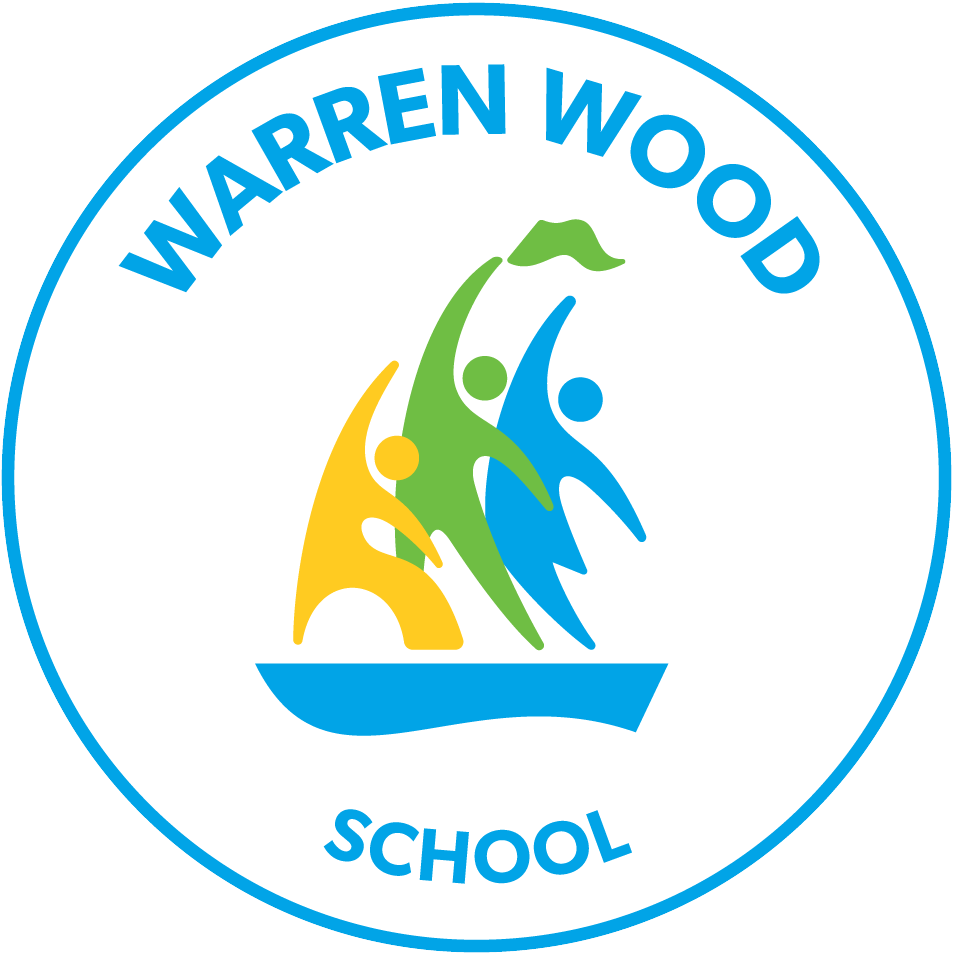Curriculum Drivers
At Warren Wood School, our curriculum is shaped by four key drivers that reflect the needs of our diverse pupils across all pathways—Pre-formal, Informal, Semi-Formal, and Formal. These drivers ensure our curriculum is meaningful, holistic and highly individualised, supporting pupils to develop essential life skills in a way that is accessible, respectful and responsive to their needs.
Communication – The Foundation of All Learning
Why it matters:
For our pupils—many of whom are non-verbal or have complex communication needs—communication is much more than spoken language. It includes vocalisations, gestures, facial expressions, symbols, sensory responses, objects of reference, AAC and behaviour. Enabling each pupil to communicate in their own way supports autonomy, connection and engagement with the world around them.
How we embed it:
- Total Communication Approach including Makaton and AAC
- Intensive Interaction
- Use of sensory cues and objects of reference
- Consistent use of visual supports, now/next boards, and structured routines
- Creation of communication-rich environments in every classroom
Evidence and Research:
- EEF highlights that communication and language support improve learning outcomes, particularly in early development.
- The SHREC approach supports high-quality adult–pupil interaction.
- ELKLAN’s Communication Friendly Settings framework underpins our whole-school approach.
- The SEND Code of Practice (2015) stresses the importance of early and personalised communication support.
Impact:
Pupils become more confident in expressing preferences, making choices and initiating interactions in their preferred mode of communication. This leads to stronger engagement, reduced frustration, increased social participation and improved access to all areas of the curriculum.
Independence – Built Through Structure, Practice, and Life Skills
Why it matters:
For many of our pupil’s, developing independence is about gaining control over aspects of daily life, no matter how small. This includes making choices, managing routines, completing self-care tasks and accessing the wider world safely and with support. Our approach recognises that independence is deeply personal and must be nurtured through consistency, encouragement and meaningful experiences.
How we embed it:
- Visual schedules, structured routines, and task breakdowns
- Individualised support
- Functional and life skills woven throughout the curriculum
- Opportunities for supported choice-making and risk-taking
- Planning for independence at every stage of development
Evidence and Research:
- EEF SEND guidance promotes scaffolded, structured teaching with gradual release of responsibility.
- Elklan supports functional communication that builds independence.
- Imray & Colley (2017) advocate for person-centred independence development over age-based expectations.
Impact:
Pupils develop greater self-efficacy, resilience and confidence. They are increasingly able to carry out everyday tasks, access their learning environment with reduced reliance on adult support, and develop vital skills for transitioning to the next stages of education and life.
Emotional Regulation – Embedded Across the School Day
Why it matters:
Many of our pupil’s experience difficulties with recognising, understanding, and regulating emotions. This can be linked to sensory processing differences, anxiety or trauma. Supporting pupils to develop emotional regulation is key to improving engagement, reducing distress, supporting communication and fostering wellbeing.
How we embed it:
- The Zones of Regulation and similar visual frameworks
- Personalised calming strategies and routines
- Sensory diets and tailored learning environments
- Consistent use of PSHE and well-being activities
- A trauma-informed approach to behaviour support
Evidence and Research:
- EEF shows SEL approaches improve emotional understanding and academic outcomes.
- The Zones of Regulation is widely used in SEND settings to support emotional literacy.
- Elklan and RCSLT highlight how communication and emotional expression are linked.
- Structured interventions improve emotion recognition and regulation (Baron-Cohen et al., 2009).
Impact:
Pupils are more settled, focused and able to access learning. With increased emotional understanding and regulation, behaviour incidents reduce, relationships improve and pupils begin to self-advocate and apply strategies that help them feel safe and ready to learn.
Preparation for Life – Real Learning for Real Life
Why it matters:
Preparing for life means helping our pupils build the skills, confidence, and experiences they need to lead fulfilling lives beyond school. Whether that includes supported employment, community participation, independent living, or simply increased autonomy, our focus is on what matters to each individual pupil and their family.
How we embed it:
- Hands-on, experiential learning based on real-world problems
- Enterprise projects, community links and local visits
- Careers education and personalised pathways to adulthood
- Curriculum links that build understanding of money, travel, time and safety
- A focus on functional communication and advocacy skills
Evidence and Research:
- Preparing for Adulthood outcomes inform our long-term planning.
- EEF highlights that real-life contexts improve motivation and retention.
- Elklan’s functional strategies support pupils to engage in community and home life.
- Mencap stresses early and consistent preparation for adulthood.
Impact:
Pupils gain real-world skills they can apply beyond the classroom. They are better equipped to navigate the world around them, participate meaningfully in their communities and lead lives with a greater sense of purpose, confidence, and independence.
Contact Details
Middlefield Lane, Gainsborough, Lincolnshire, DN21 1PU
01427 615498

 Visit our Trust
Visit our Trust